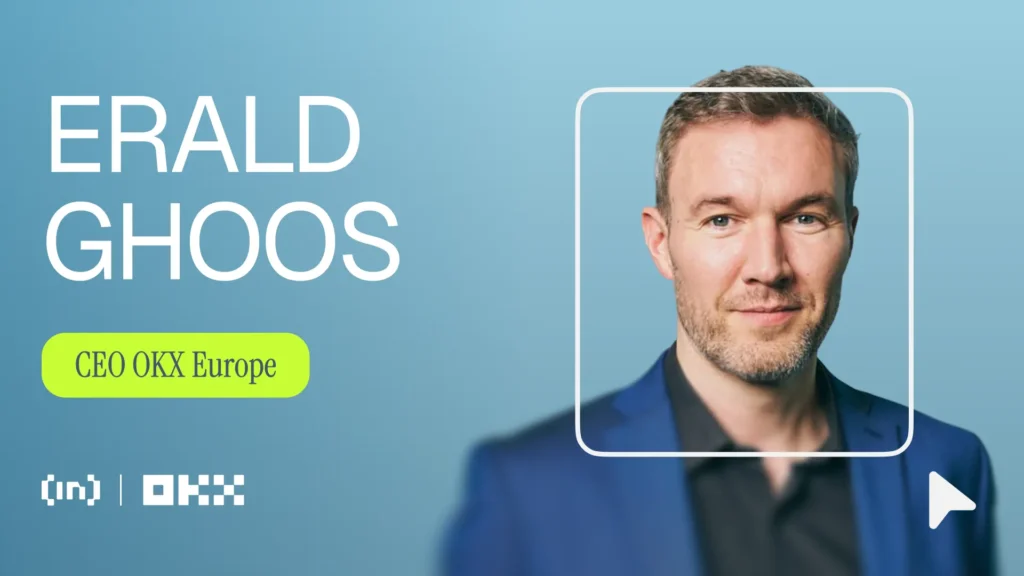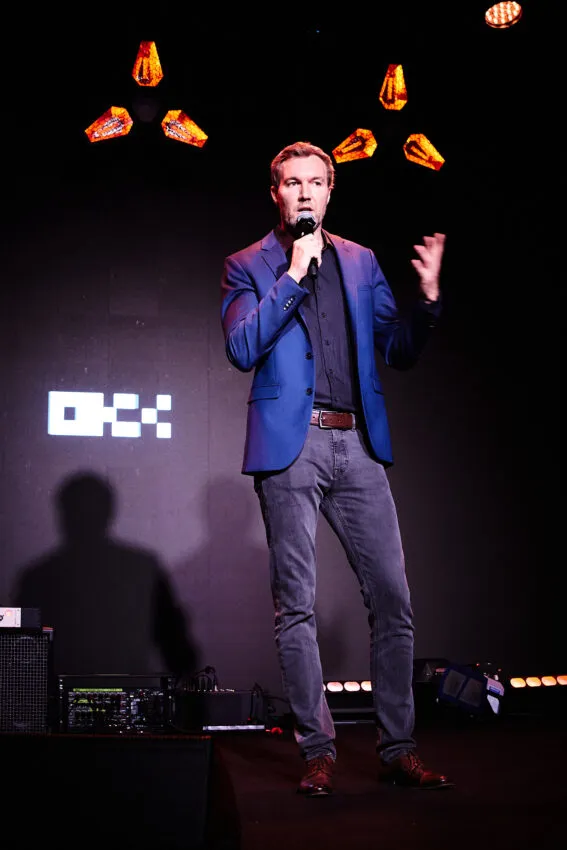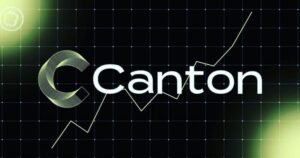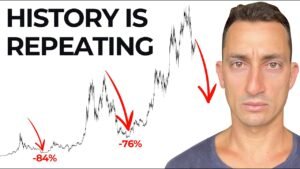What OKX’s “Go Deep” Strategy Means for Polish Crypto Users

On June 16, 2025, OKX hosted a landmark event in Poland to officially mark the beginning of its operations in the country. Held in Warsaw, the event gathered crypto enthusiasts, financial professionals, and media representatives, showcasing OKX’s commitment to expanding within the European Union under the recently enforced MiCA framework.
With Poland recognized as one of Europe’s fastest-growing crypto markets, the event served not only as a launchpad for OKX’s local activities but also as a broader statement of intent: to become a key player in shaping regulated, user-centric crypto ecosystems across Europe.
During the event, BeInCrypto had the opportunity to sit down with Erald Ghoos, CEO at OKX Europe, for an in-depth conversation about the company’s strategic priorities. The discussion touched on OKX’s tailored approach to the Polish market, its commitment to compliance and security, and how local insights fuel its global ambitions.
Ghoos shared exclusive updates on upcoming integrations, including partnerships with Polish digital ID providers and payment platforms like BLIK, and offered a broader vision of how OKX is building the foundation for long-term, sustainable growth throughout Europe.
First Impressions and the Pulse of Poland
Jakub Dziadkowiec (BeInCrypto): Nice to meet you Erald. Welcome to Poland. How do you find the country so far?
Erald Ghoos (CEO, OKX Europe): Thank you, Jakub. It’s great to be here. I must say, I’ve always had a soft spot for Poland. I’ve visited many times before, and every time I come back, I’m reminded of how dynamic and welcoming the country is. The people here are fantastic—friendly, driven, and very aware of what’s going on in the world. There’s a certain energy in the air, something alive about the vibe here.
Just a couple of days ago, when I was flying in, I stumbled upon a fascinating economic statistic. It mentioned how Poland’s economy is currently booming. What caught my eye was a comparison: if you take several neighboring countries—excluding Germany—and combine their economic outputs, Poland still comes out stronger. That says a lot. It positions Poland not only as a rising European economy but as a leading light in the former Eastern Bloc.
From our perspective at OKX, that kind of momentum is exciting. It makes Poland a prime market for innovation, especially in fintech and crypto. The growth, the interest, and the readiness of the people to engage with new financial tools—it’s all here.
Strategic Priorities: Why Poland is One of OKX’s Top 5 European Markets
Jakub: You mentioned during your presentation that Poland has become one of your top five markets in Europe. Can you elaborate on that? Why the strong focus here?
Erald Ghoos: Sure. When we looked at our European strategy, we had to be realistic. The European Economic Area consists of 30 countries. It’s just not feasible to launch simultaneously with equal intensity in all of them. So, we identified five key markets where we’d start with full force: Germany, France, Italy, Spain, and Poland.
Why Poland? For several reasons. First, it’s a large and rapidly growing economy. Second, the level of crypto adoption is extremely impressive. Recent data shows that around 11.7% of the Polish population holds crypto assets. That puts Poland among the top three countries in Europe, alongside the Netherlands and Slovenia.
But that’s not all. Awareness is also sky-high—95% of the Polish population has heard about cryptocurrencies. That’s a leading statistic in Europe. For us, it signals two important things: one, that crypto is already part of the public discourse; and two, that people here are financially curious and digitally literate.
These are critical ingredients for market success. And when you combine this with a proactive government attitude towards digital transformation, Poland stands out as a natural choice for us to invest in.
MICA and MiFID: The Regulatory Backbone of OKX’s Expansion
Jakub: You mentioned the MICA license earlier. This regulation seems to be a cornerstone of your approach. What does it enable you to do in Poland and across Europe? And how does it give you an edge compared to other exchanges?
Erald Ghoos: That’s a great point. Regulation is absolutely central to our strategy. We were one of the first global exchanges to secure a MICA license. We received it on January 27th, and just a few days later, we successfully passported it across the entire EU.
With the MICA license, we’re authorized to offer core services like spot trading—buying, selling, and holding cryptocurrencies. This already opens up a wide range of financial services.
But we didn’t stop there. To cater to more advanced traders who are interested in leveraging their positions or engaging in futures trading, we also pursued a MiFID license (Markets in Financial Instruments Directive). That license allows us to legally offer regulated derivatives—an area that’s often murky in crypto.
We acquired the MiFID license in Malta and are now finalizing the last steps in terms of paperwork and operational approvals. Once that’s complete, OKX will be among the very few exchanges capable of offering fully regulated derivative trading throughout Europe.
This dual-licensing framework sets us apart. Many of our competitors are still navigating the regulatory maze. And as MICA enforcement tightens, some may not even qualify to continue operating in markets like Poland. That gives us a distinct first-mover advantage.
Transparency, Security, and the Importance of Proof-of-Reserves
Jakub: That’s a strong regulatory foundation. But how else are you different? What do crypto users get from OKX that they might not get elsewhere?
Erald Ghoos: Transparency and security are at the heart of everything we do. Our first differentiator is compliance—we’re meticulous about following the rules. It’s part of our DNA. For example, we were the first global exchange in Europe to fully comply with the Travel Rule.
For those unfamiliar, the Travel Rule is a global regulation established by the FATF (Financial Action Task Force). It requires exchanges to share sender and receiver information during crypto transfers. That means anonymous transfers are no longer permitted between licensed exchanges. We implemented this rule ahead of others, which shows our proactive attitude towards global compliance.
Our second pillar is Proof-of-Reserves. Every month, we publish cryptographically verifiable data to prove that the assets users see in their accounts are actually held by us—1:1. No fractional reserve practices. No funny business. This level of transparency is something we’re very proud of.
Compare this to traditional banks, where fractional reserve lending is the norm. You deposit your money, but most of it is loaned out or invested. In the crypto world, we saw what happened with FTX. They were using customer funds for internal investments, which ultimately led to their collapse.
That’s why our monthly Proof-of-Reserves is not just a feature—it’s a necessity for building trust in this space.
Building Local Teams with Global Reach
Jakub: You also touched on your “global but local” strategy. That resonates a lot with us at BeInCrypto—we also have local teams in over 25 countries. Why is this approach so important for OKX?
Erald Ghoos: Because every market is unique. Financial needs differ dramatically from country to country. What works in the Netherlands may not work in Greece, Luxembourg, or Poland.
That’s why we invest in building local teams. These teams know the market inside out. They engage with the community, attend local events, and listen to what people want.
In Poland, for instance, I learned from our team here that payment methods like BLIK and Zen are essential. In Malta, where I’m based, I had no idea what BLIK was until my Polish colleagues explained it. That’s the value of local knowledge.
We aim to replicate this model in every market we enter. Local teams help us adapt—not only our product offerings, but also our communication style, customer service, and even compliance workflows.
Digital Identity, E-Governance, and Lowering the Barrier to Entry
Jakub: That’s very forward-thinking. Speaking of local adaptation, Poland is advanced in digital identity and e-governance. Are you planning to integrate with any of our e-ID systems?
Erald Ghoos: Yes, absolutely. We’re already in discussions with two Polish vendors. One of them is EID Creative, and the other’s name escapes me, but it’s a Polish-based solution as well. We’re in the advanced stages of integrating these digital ID systems into our onboarding process.
This is a win-win. It reduces friction for users and makes the compliance process smoother. Instead of uploading documents and waiting days for approval, users can verify their identity in seconds using a system they already trust.
It’s especially appealing for younger, tech-savvy users. In Poland, around 10 million people have already enrolled in e-ID platforms. That’s a huge demographic, and it aligns perfectly with our target audience.
The Future of Payments: BLIK, Stablecoins, and OKX Pay
Jakub: One last local recommendation: BLIK is massive here. If users could buy crypto directly with BLIK, I think you’d win a lot of hearts.
Erald Ghoos: I completely agree—and we’re already working on it. In fact, I can confirm that we’ll be announcing something in that area in the coming weeks. BLIK is a trusted brand in Poland. People use it for e-commerce, banking, and even peer-to-peer transactions.
It’s the same dynamic we see in other countries. In the Netherlands, there’s iDEAL. In Belgium, it’s Bancontact. If you don’t support these payment methods, people simply won’t trust your platform.
That’s why we’re prioritizing this integration. Once it’s live, buying crypto in Poland will be as easy as buying a coffee.

European Unity Through MICA
Jakub: Let’s talk about MICA more broadly. Do you think it’s making a real difference across the EU?
Erald Ghoos: It already has. Before MICA, the European crypto landscape was fragmented. Some countries had crypto-friendly regulations. Others were hostile. In many cases, we faced overlapping requirements—different legal disclaimers, local data protection officers, separate licenses, banners on every page… It was a maze.
MICA changes all of that. It creates a harmonized framework that applies to the entire EU. It reduces red tape, lowers operational costs, and gives companies like ours the confidence to scale.
Even traditional banks are responding positively. They now know exactly what’s allowed and what isn’t. That clarity is what institutional players have been waiting for.
It also helps us with fiat partners. Before, banks saw crypto companies as high-risk. They charged extra fees or refused service. Now, with a MICA license, we’re treated like EMIs or payment institutions. We’re no longer considered risky. We get better pricing, better support, and better infrastructure.
Expanding Horizons: Future Plans and the DeFi Vision
Jakub: What’s next for OKX in Europe? Any plans for new markets in the next 6 to 12 months?
Erald Ghoos: Our focus now is on making our five key markets successful. As our President, Hong Fang, says, “Go deep before you go wide.” We want to refine our approach, test what works, and then replicate that success elsewhere.
That said, we’re also preparing to relaunch our Web3 and DeFi products. OKX DeFi was already one of the stronger platforms in the space, and now we’re building on that.
We’re also introducing OKX Pay—a peer-to-peer payment system built on stablecoins. With Tether no longer compliant in Europe under MICA, there’s an opportunity to offer a regulated, Euro-friendly alternative.
OKX Pay is inspired by Satoshi Nakamoto’s original vision—a peer-to-peer financial system. It will allow users to send stablecoin payments directly, instantly, and with minimal fees. We see this as a major step forward in crypto utility.
IPO: A Thought, Not a Plan—Yet
Jakub: Final question—do you ever think about going public, like Coinbase or Circle?
Erald Ghoos: Of course, it’s something we think about from time to time. We have the scale. We have the regulatory structure. We’re financially stable. But at the moment, there are no concrete plans. It’s an idea that stays in the background, something we’ll revisit when the timing feels right.
Jakub: Erald, thank you for this insightful and comprehensive conversation. Welcome again to Poland. I hope you enjoy your stay.
Erald Ghoos: Thank you very much, Jakub. It was a pleasure talking with you and sharing our vision for OKX in Poland and across Europe.
Disclaimer
In compliance with the Trust Project guidelines, this opinion article presents the author’s perspective and may not necessarily reflect the views of BeInCrypto. BeInCrypto remains committed to transparent reporting and upholding the highest standards of journalism. Readers are advised to verify information independently and consult with a professional before making decisions based on this content. Please note that our Terms and Conditions, Privacy Policy, and Disclaimers have been updated.












